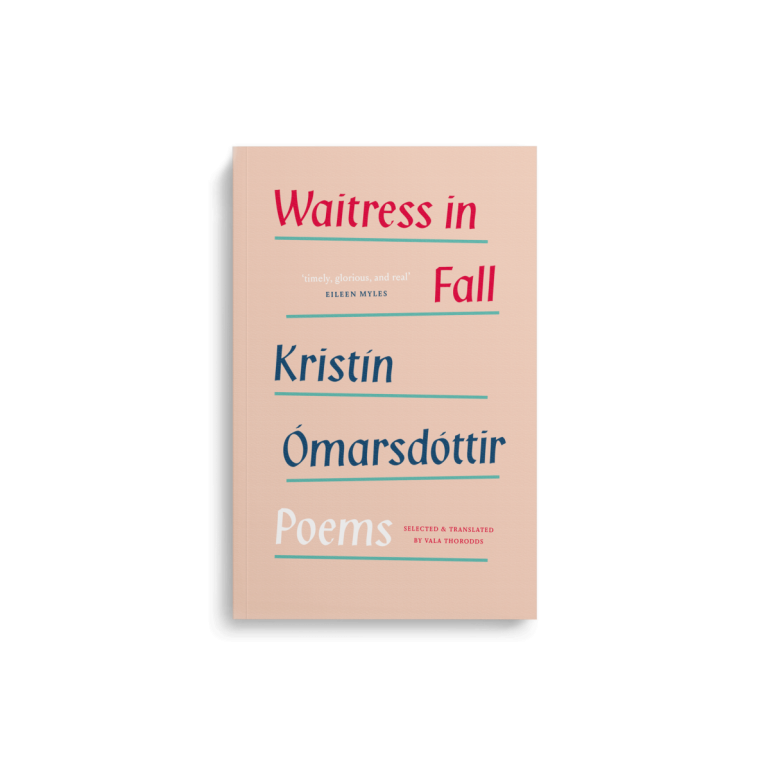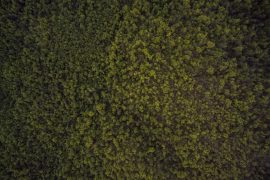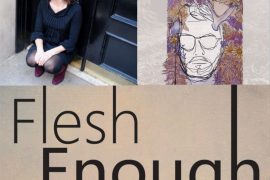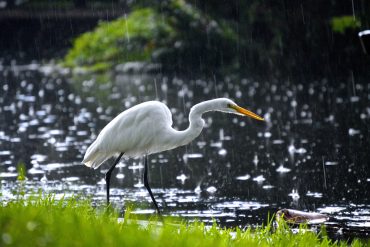Waitress in Fall by Kristín Ómarsdóttir, translated from the Icelandic by Vala Thorodds and published by Carcanet / Partus Press, 2018
It is a unique privilege to be an American reader coming to Kristín Ómarsdóttir’s work for the first time. Kristín (since Kristín is Icelandic we will continue to use her given name — “Ómarsdóttir” is a patronymic, not a last name) is a literary celebrity in Iceland, where she has won several major literary awards and has been published extensively in multiple genres; her Wikipedia bibliography, for instance, is divided into Novels & Stories, Poetry, Other Books, Theatre & Radiodrama, and Exhibitions. Waitress in Fall is a generous selection from almost all of Kristín’s published volumes of poetry, spanning a career of more than 30 years. English-language readers could hardly ask for a more comprehensive introduction (much less one so lovingly and capably translated by the poet Vala Thorodds) to the poetic oeuvre of one of Iceland’s foremost authorial spirits.
Here are some of the things you will find in Kristín’s shimmering poems: love, death, domesticity, a tour guide, snowfall, wishes coming true, doves, spiderwebs, socks, a watermelon, tongues, tigers, a mum and her children, dancing mushrooms, war and peace, fish, coffee, blood, a letter, soup, and a butterfly. Of course the list could go on, and does, but nothing gives a sense of the texture of Kristín’s work quite like the poetry itself:
under the window in the midday sun
out in the dining hall, over a light blue tablecloth
is a quiet sweat pearl falling down my forehead
it is the superglue, strong as glass,
that fixes me to the ground
so I don’t rise from the grave
muttering nonsense
like a newly graduated high school student!
I love this excerpt because, though it’s only eight lines long, some of Kristín’s most beloved gestures can be found in it: precise invocations of domestic scenes, skillfully depicted such that they read as somehow both abstract and embodied (“a light blue tablecloth”, “a quiet sweat pearl”); a delightful attention to sound, preserved in Vala Thorodds’s thoughtful translation (the s’s and g’s of “superglue”, “strong”, “glass”, and “ground [//] so” create a sonic link that perfectly renders Kristín’s metaphor into an English soundscape); and, perhaps most importantly, a persistent sense of humor (“like a newly graduated high school student!”).
The poem the above excerpt is taken from is titled “Ode”, which feels apt in two senses: first, these poems are certainly meant to sing their sounds into the air, as the Greek odes were once sung to lyric accompaniment. Kristín is, fittingly, an accomplished performer of her own poems; although a recitation in Icelandic might not convey this fact very well to an English-speaking viewer, one need look no further than this 1988 silent portrait of Kristín by Gérard Courant to get a sense of her aura as a performer. This aura is fueled by an inimitable in-person presence that has been well-documented by interviewers et al. Second, the ode is the mode of a poetry of praise and of affirmation, and Kristín’s poems consistently partake of a near-ecstatic lust for life, compressed into images of impressive scope and undeniable joy:
from the taps of the car parks
from the taps of the house walls
gardens
alleyways
under the pond bridge
by the parking meters
pier stilts
nightmilk from near and far
wherever thirst is ignited
nightmilk
As she writes in this poem, “wherever thirst is ignited” Kristín’s work shows us the contours of that thirst in luminous detail, as well as the cool water on offer to quench it in the reader:
My jug full of blue water
and suns.
***
One way to make Kristín’s singular body of work more familiar to the American reader is to see in it the same kind of visionary displacement of the lyric that some US poets have been practicing for years, as Kristín’s transatlantic contemporaries. Here, for example, is a brief moment chosen almost at random from Fanny Howe’s much-beloved Selected Poems:
I often believe that nothing can be lost.
A quarter-inch aura grows
like moss out of everything soft.
Kristín’s poems share with Howe’s their striking precision at the level of the image (“A quarter-inch aura”!) while still retaining an all-around softness that still feels warm and alive and all-embracing (“like moss”). Both poets, too, are steeped in modalities of the moral and the metaphysical. Although they don’t shy away from meditations on these topics (Howe’s “I often believe that nothing can be lost,” and for instance Kristín’s enigmatic line “[i]f you smooth out a tablecloth you imitate God”), their poems wander these trails without feeling didactic or forced. The reader, then, becomes a fellow traveler, privy to the same rich unknowing as the poet on their shared mystical journey—and now, fortunately, they are no longer traveling alone.
***
It is certainly helpful to think of Kristín’s work in relation to Howe’s and that of other American poets, but it’s also important to acknowledge that in the fullness of their individuality Kristín’s poems bear the indelible marks of having been written in, from, and about her native Iceland:
if Eros himself came here he’d feel faint
at the sight of such well-groomed hands
and send us lovers forthwith
but his majesty has never visited Iceland
As Vala Thorodds’s very helpful afterword indicates, Kristín’s books have tended to be distributed according to the particular demands of the Icelandic book economy, which “relies so heavily on the Christmas gift market, in which the product must above all be new, [that] contemporary Icelandic literature regularly and as a matter of course goes out of print.” Take for example Kristín’s 2006 book Christmas Poems, from which a considerable selection is included in Waitress in Fall. It is somewhat difficult to imagine many contemporary American poets writing a book called Christmas Poems, but it is easy to think of examples of writers whose work, like Kristín’s (and Howe’s!), can be frustratingly difficult to get one’s hands on. This is all the more reason for us to be grateful a book like Waitress in Fall exists in the first place, to give us a judicious and generous cross-section of Kristín’s bright corner of the archive.
***
The most recent of Kristín’s books included in Waitress in Fall is Spiders in Shop Windows from 2017. I love this book because it is such a clear exhibition of the playful, experimental style that Kristín has developed over her entire writing career, and it takes risks that one can’t help but feel come from a sensibility that has seen almost everything, but somehow yet has more to show the reader:
this pink night ignites the butterflies that fly outside the window
the flames lock their claws into unsaid sentences and cats’ eyes magnify your image
that projects onto the dreamscreen while the cars in the cinema make love at the garbage heap
at daybreak the lovers catch fire
We are very, very fortunate to be living in a world where there are “unsaid sentences” that Kristín Ómarsdóttir has still to set to the page. In other words, as Eliza Griswold once wrote, “[t]rue intelligence is boundlessly generous.” By this metric, or any other, these poems are intelligent beyond measure.





